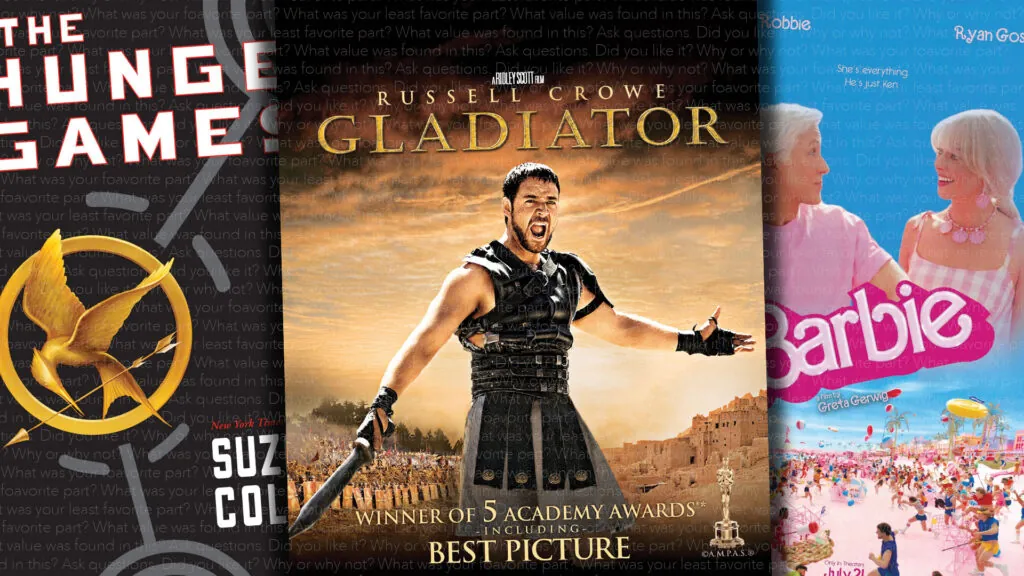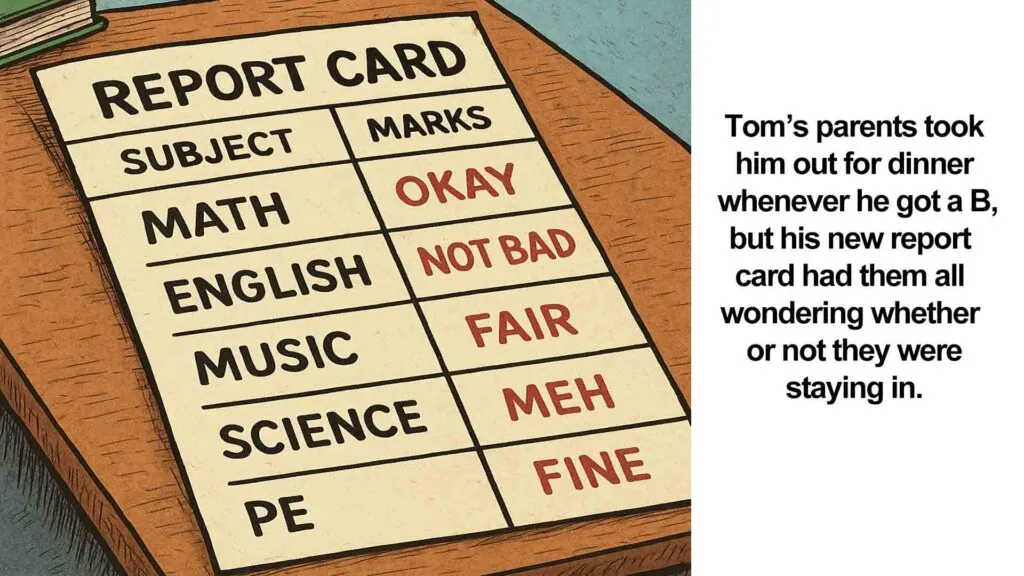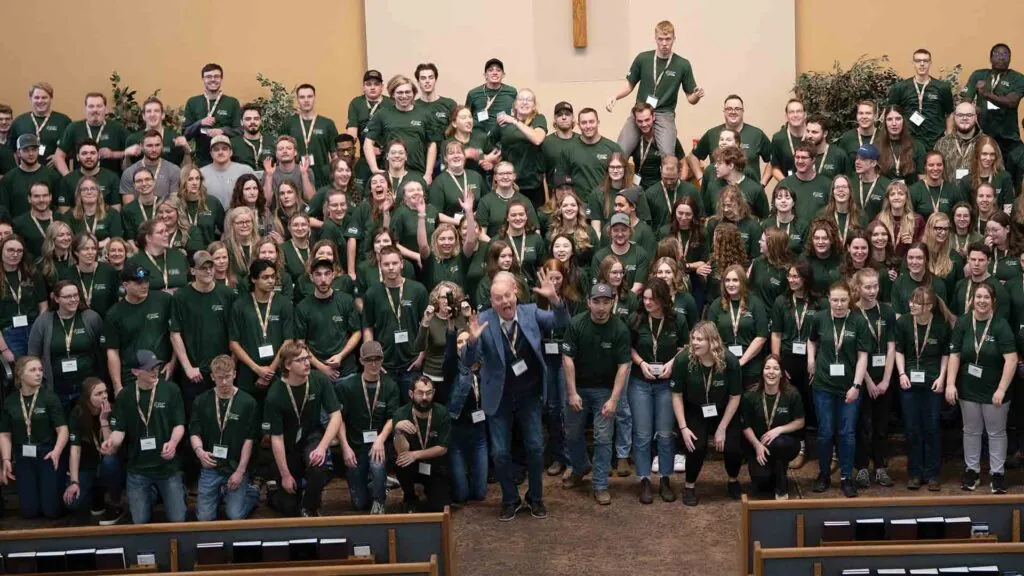
In a Nutshell
Tidbits – December 2025
Go Ukrainian
While canvassing for money-saving ideas I came across one appropriate for this season. As many of our readers know, the Dutch traditionally exchange presents on December 5th, three weeks before most other people do it. But did you know that the Ukrainian will exchange gifts on January 7th?
Just imagine how much money could be saved if we did all our shopping in those after-Christmas, Boxing week sales? It seems, to be truly Dutch is to go Ukrainian!
Words will hurt us
Do you say “gay” when you're talking about homosexuality? Jerry Johnson wants you to stop. In a commentary some years back he made the case that the choice of terms used in a debate can determine who will win it.
For example, in the abortion debate the other side wanted to be known as “pro-choice” and wanted us to be called “anti-choice.” But if we had allowed the debate to be about choice, rather than life, well, we would have lost right there – who wants to stand with the anti-choicers? So it was strategically important that we highlighted the truth behind our position and fought to be called “pro-life.”
It is just as important, then, that we make careful use of the right terms in the many other cultural debates we are involved in. Johnson suggests the following alternatives to what we most often hear in the secular media.
- Instead of a government “stimulus” to talk about government spending, we need to respond with the more accurate “spending spree.
- When mention is made of everyone getting their “fair share,” we need to identify this for what it is: “socialism” or “covetousness.”
- We need to stop using the term “gay marriage” and talk instead of “homosexual unions.”
And in his most creative substitution, Johnson proposed an alternative to “regulate.” “When they talk about ‘regulate,’ as in regulations, what they really mean is ‘constipate.’ They want to back-up progress.”
On public schools
“Is there an idea more radical in the history of the human race than turning your children over to total strangers, who you know nothing about, and having those strangers work on your child’s mind, out of your sight, for a period of twelve years? Could there be a more radical idea than that? Back in colonial times in America if you proposed that as an idea, they would burn you at the stake, you mad person! It’s a mad idea!”
– John Taylor Gatto, former teacher, in the 2011 documentary IndoctriNation: public schools and the decline of Christianity in America
The 6 greatest toys ever
Some years back, Geekdad.com blogger Jonathan H. Liu compiled a list of "The 6 best toys of all time." Parents in search of the perfect presents may benefit from his wisdom. His top 6 were:
1. Stick
2. Box
3. String
4. Cardboard Tube
5. Dirt
6. Water
Selective skepticism
In a departure from his usual crime or political fiction, some years back British writer Jeffery Archer wrote The Gospel According Judas. It mimics the style and verse-by-verse layout of the four Gospels, but is told from the perspective of Judas Iscariot, who Archer portrays as misunderstood. What’s intriguing about the book is what Archer leaves in – Jesus still cures leprosy, makes the blind see, and casts out demons – and what he leaves out. He has Judas specifically deny that Jesus ever turned water into wine.
Why the problem with this particular miracle? As Archer explains in the glossary: “if it had been true, Jesus would have changed about 120 gallons of water into wine!”
Archer’s selective skepticism is quite befuddling (Jesus can heal the blind, but 120 gallons of water is too much for Him?) but also quite familiar. In Reformed circles, when it comes to the Origins debate – whether God used Creation or Evolution – there are some who think it natural to believe that God created the Sun out of nothing, but impossible to think that, as Genesis 1 depicts, He created light before the Sun. For them, that is a sticking point, and a reason to doubt that the text is literal. To question a six-day Creation but profess belief in the Resurrection of Christ is to be, like Archer, selectively skeptical. Both events are miraculous and “unscientific” so why believe what the Bible says about the one, while questioning what it says about the other?
Quote of the month
"I am reminded that one old saint was asked, ‘Which is the more important: reading God's Word or praying?’ To which he replied, ‘Which is more important to a bird: the right wing or the left?’”
- A.W. Tozer
Joke of the month
In our culture, husbands and fathers are regularly belittled, which is why "dumb husband" jokes just aren’t funny.
Except this one.
Wife to husband: "Could you please go shopping for me and buy one gallon of milk, and if they have eggs, get a half dozen."
A short time later her husband comes home, carrying several bags.
Wife: "I wanted one gallon, why on earth did you bring home six?"
Husband: "They had eggs."
Adapted from a joke circulating the Internet
Questions for young men
Some years back I heard a wise old pastor pass along 21 questions he might ask potential suitors for his daughters (though both of them are now married). He noted the questions weren’t to be used in a “wooden checklist fashion”; instead he was offering them as a source of inspiration for other fathers. His list can be divided into five categories. There are questions that address the suitor’s:
- Spiritual life – “Do you attend worship every Lord’s Day” “When was the last time you read the entire Bible” “Have you ever had a period of spiritual rebellion?”
- Relationship with family/parents – “What is your relationship like with your mom?” “Would you agree that this will likely be the way you will be treating my daughter ten years from now?”
- Ability to provide + work/financial goals – “What are your debts?” “How much did you make last year?” “What do you believe God has called you to do vocationally?” “What steps have you taken to reach that goal?”
- Regard for your daughter – “Describe my daughter to me.” “Why do you think you would be a blessing to her?”
- Sexual/moral conduct – “Do you have a problem with pornography?” Live-in girl friend two years before you became a Christian? Live-in girl friend six months after you became a Christian?”
His questions are direct and I suspect few Christian young men have had to face such a barrage. But once the shock wears off, the value of each of these pointed queries becomes evident. Do we want to let polite niceties get in the way of properly assessing the measure of a man looking to date our daughter?
The questions can also serve as a wake-up call to young men, whether or not a girl’s father is involved. They are questions we can benefit from asking ourselves. When is the last time you’ve read the entire Bible? Why do you think you will be a blessing to this girl you want to date? Are you a leader ready to be the spiritual guide in your families? Are you a godly men? These are good and necessary questions. And if we don’t have good answers for them we need to repent and seek God’s help to be the sort of men that godly fathers want for their godly daughters.
Sermons and sleep
The life of a missionary brings with it challenges big, small, and even comical. What follows is from Dr. Bredenhof’s missionary memoir The Gospel under the Northern Lights, which is about his time working among natives in northern BC.
One of the lesser challenges was not having a church nursery at Wit'at Reformed Fellowship. We'd gone through that already with Julie. Now she was okay with sitting in church and we started the process again with Emeline. There were moments that I'd be preaching and Emeline was inconsolable. Rose was trying to keep the two oldest in line and comfort a crying baby. It was impossible for her to do it by herself. One Sunday things were so bad that I took Emeline in my arms and held her against me while I was preaching. There she finally fell asleep. That reminded me of an old ditty by Charles Spurgeon. He said
“It is an ill case when the preacher
Leaves his hearers perplex'd -
Twixt the two to determine:
“Watch and pray,” says the text,
'Go to sleep,' says the sermon."
That was probably the only time I hoped the sound of my words would put someone to sleep. (The Gospel under the Northern Lights can be purchased at lulu.com/spotlight/wesbredenhof.)
Great pro-life slogans
- Love lets live – Abort73.com
- Kill the patient, not the pain – Euthanasia Prevention Coalition
- What if you’re wrong? – as seen on a pro-life billboard
- A person is a person, no matter how small – Dr. Seuss’s Horton Hears a Who
- The answer to a crisis pregnancy is to eliminate the crisis, not the child – Jeannie W. French
- Birth before death – Abort73.com






























